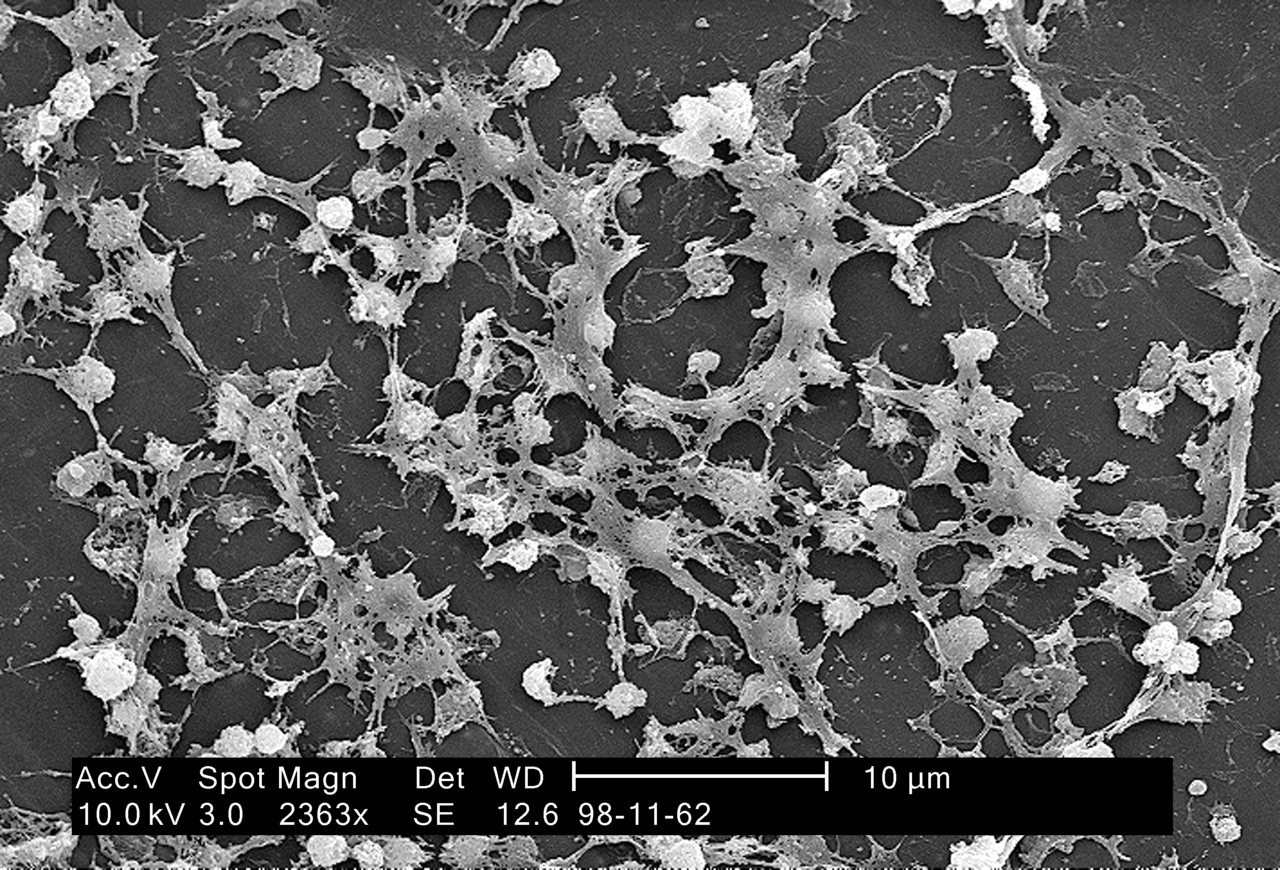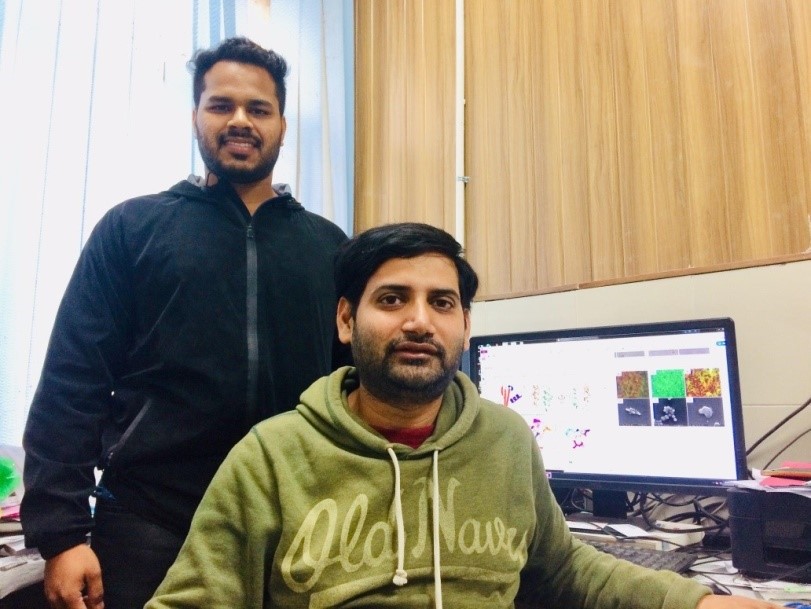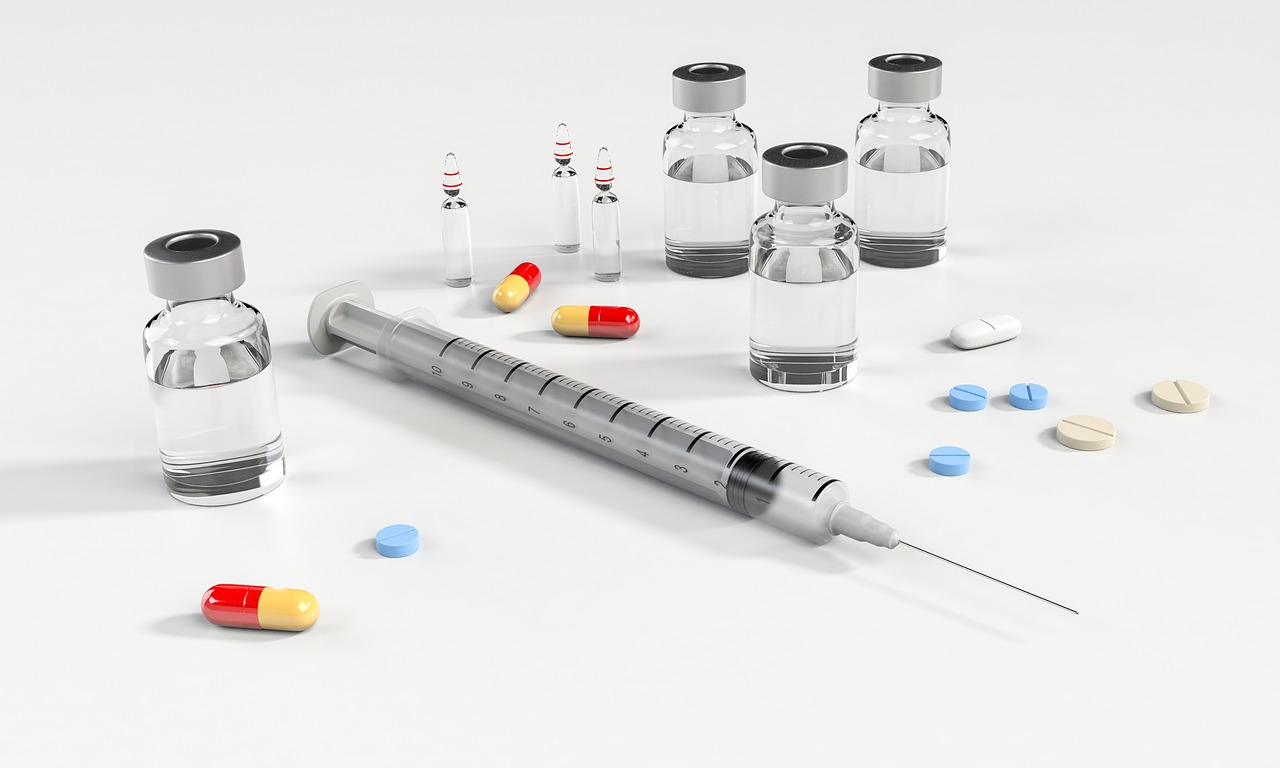
Seaweed-Silver Combo Can Fight Drug-Resistant Bacteria in Biofilms
- News
- 2.5K
Antibiotic resistance is a major problem in the health sector globally. Many times bacteria form biofilms to resist the action of antibiotics. They do so by adhering together to form a matrix with the help of polymer which they produce. Such microbial films are responsible for the failure of devices such as catheters and ventilators.

IMAGE: Dr Krishna Mohan Poluri (Standing) and Mukesh Kumar Meher
Researchers at Indian Institute of Technology, Roorkee (IIT-Roorkee) have developed a new eco-friendly nanocomposite that promises to help fight the problem of such antibiotic resistance more effectively. The newly synthesized nanocomposite is capable of penetrating these biofilms and kill microbes.
The new compound has been developed by combining silver particles with ĸ-Carrageenan, a polymer derived from red seaweed. The polymer is conventionally used in food products as a gelling, thickening and emulsifying agent.
Silver nanoparticles are already known to have the ability to kill microbes but they are unstable and have a short shelf life. Researchers used ĸ-Carrageenan to increase stability and shelf life of silver nanoparticles. They made a solution of ĸ-Carrageenan with silver nitrate and irradiated it in a microwave synthesizer. The nanocomposite thus obtained was found to be very stable and has a long shelf life, while being effective against both Gram-positive and Gram-negative bacteria.
“Capping of silver nanocomposites with ĸ-carrageenan imparts its stability and shelf life up to six 6 months, which is one of the essential features of therapeutic formulations. The nanocomposite shows excellent antimicrobial activity against S.aureus and P.aeruginosa bacterial biofilms,” researchers said. As carrageenan has been widely studied for its antifungal, anti-viral, anti-cancerous and immunomodulatory properties, the nanocomposite based on it can have huge potential in biomedical applications.
The new nanocomposite also has potential applications in the food packaging industry as microbial films spoil food products. “We are currently devising cost-effective anti-bacterial wound dressing materials and food packaging materials using the new nanocomposite. We plan to study its efficacy as potent anti-fungal and anti-viral agents too,” said Dr.Krishna Mohan Poluri, a member of the research team, while speaking to India Science Wire.
The research results have been published in journal Carbohydrate Polymers. Besides Dr Krishna Mohan Poluri, the team included Apoorva Goel, Mukesh Kumar Meher, Payal Gupta, Khushboo Gulati and Vikas Pruthi. (India Science Wire)
By Dr Aditi Jain
Journal Article
Microwave assisted κ-carrageenan capped silver nanocomposites for eradication of bacterial biofilms
If you liked this article, then please subscribe to our YouTube Channel for the latest Science & Tech news. You can also find us on Twitter & Facebook.


